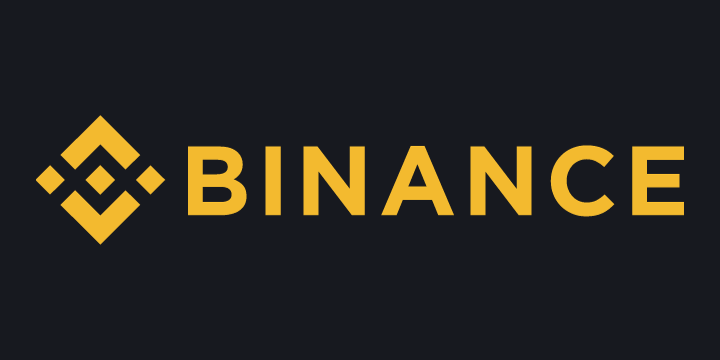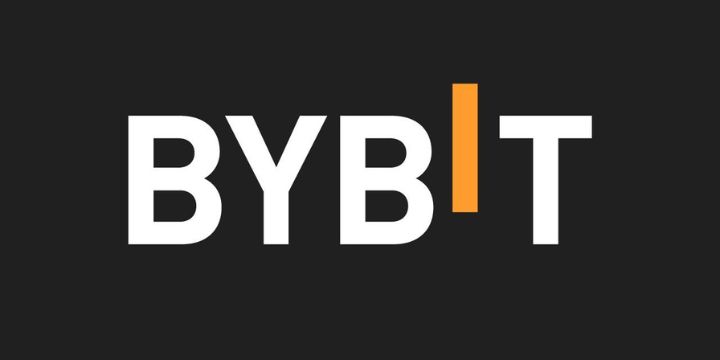Since the Ethereum Merge introduced the Proof-of-Stake (PoS) mechanism, Ethereum staking has been popular. This rise has spawned numerous staking platforms, each asserting its superiority for rewarding ETH ventures. So, this article will explore the best place to stake your ETH.
Key Takeaways:
- Binance offers competitive Annual Percentage Yield (APY) rates of 3.67% for fixed staking and 0.88% for flexible staking, requiring a minimum of 0.1 ETH to start.
- ByBit provides a liquid staking system with potential returns of around 6% for ETH staking, requiring a minimum of 0.1 ETH and a maximum of 5,000 ETH.
- Coinbase offers straightforward staking with an APY of 3.06% for ETH, with no minimum staking requirements but a maximum limit of 10,000 ETH.
- OKX has dynamic Ethereum staking APY ranging from 3% to 6.99%, and it imposes no minimum staking requirement, making it highly accessible.
Best Place to Stake Ethereum (ETH)
Staking Ethereum involves participating in the network’s consensus mechanism by locking up a certain amount of ETH. This not only helps secure the network but also rewards participants with additional tokens. When it comes to choosing the platform for staking Ethereum (ETH), we can confidently guide you toward the optimal choices. Here are the list of the best place to stake Ethereum (ETH):
- Binance
- Bybit
- Coinbase
- OKX
- Kraken
- Lido
- Rocket Pool
1. Binance
![Best Place to Stake Ethereum (ETH) with Highest Rewards ([currentyear]) 5 Binance Review - Featured Image](https://coinwire.com/wp-content/uploads/2022/09/Binance-review-featured-image-1024x709.png)
Binance, one of the leading cryptocurrency exchanges globally, offers an accessible and rewarding platform for Ethereum staking. To start your Ethereum staking journey with Binance, you’ll need to open a Binance account and a minimum of 0.1 ETH.
Once you stake your Ethereum tokens, Binance actively distributes on-chain rewards to all participants based on their BETH (Binance Ethereum) position. These rewards are provided in the form of BETH tokens, seamlessly deposited into users’ Spot Accounts.
BETH tokens represent your staked ETH and offer an added layer of flexibility. This means you can seamlessly convert BETH tokens back to ETH on a 1:1 basis or use them to meet your trading or withdrawal needs.
ETH Staking Rewards on Binance
The estimated annual percentage yield (APY) for ETH staking on Binance Earn stands at 3.67% for fixed staking durations and 0.88% for flexible staking durations. These rates can give you a clear perspective on the potential rewards of your staking endeavors.
2. Bybit
![Best Place to Stake Ethereum (ETH) with Highest Rewards ([currentyear]) 6 Bybit Featured Image](https://coinwire.com/wp-content/uploads/2022/06/Bybit-review-1024x683.png)
Another way to earn passive income while contributing to the validation of the Ethereum network is through ByBit’s ETH 2.0 liquid staking system. In liquid staking, users lock up ETH as collateral and receive tokens representing their staked assets. These tokens can be freely traded and used in decentralized finance (DeFi) applications.
To start staking ETH on ByBit, you’ll need a ByBit account with a minimum of 0.1 ETH or a maximum of 5,000 ETH. When you stake your ETH on ByBit. This trading platform will automatically convert your ETH into stETH at a 1:1 ratio and send equivalent stETH tokens to your account. The minting process for stETH typically takes 15-30 minutes. If you are from Australia, also consider staking ETH on the MEXC exchange.
ETH Staking Rewards on Bybit
The estimated Annual Percentage Yield (APY) for ETH staking on ByBit fluctuates daily, with the highest APR hovering around 6%.
3. Coinbase
![Best Place to Stake Ethereum (ETH) with Highest Rewards ([currentyear]) 7 Coinbase Homepage](https://coinwire.com/wp-content/uploads/2023/08/coinbase-1024x512.jpg)
Staking Ethereum (ETH) on Coinbase provides a straightforward way to earn rewards while actively participating in the Ethereum network. To begin staking ETH on Coinbase, you only need a Coinbase account.
Coinbase has no minimum ETH staking requirements, making it accessible for users with varying amounts of ETH. However, there is a maximum ETH staking limit of 10,000 ETH. This limit can change over time and is not specific to individual accounts.
When you stake ETH on Coinbase, you receive ETH2 tokens in return. ETH2 tokens represent your staked ETH and reflect your contribution to the network’s security. You can trade ETH2 tokens for Coinbase Wrapped Staked ETH (cBETH) at a 1:1 ratio.
cBETH is a tokenized representation of staked Ethereum issued by Coinbase. The advantage of cBETH is that it allows you to maintain liquidity while still participating in staking. You can trade cBETH on various exchanges or use it in DeFi applications, expanding your staked asset’s utility in the broader cryptocurrency ecosystem.
ETH Staking Rewards on Coinbase
The estimated Annual Percentage Yield (APY) for ETH staking on Coinbase is 3.06%.
4. OKX
![Best Place to Stake Ethereum (ETH) with Highest Rewards ([currentyear]) 8 Okx Review](https://coinwire.com/wp-content/uploads/2023/07/okx-review-1024x683.jpg)
OKX ranks highly as one of the best platforms to stake ETH. Unlike other platforms that charge a commission on staking rewards, OKX does not impose commission fees on ETH staking.
This platform also covers the ETH staking fee, meaning you won’t have to worry about paying gas fees for your activities. This can be a significant advantage, particularly for users looking to optimize their returns without additional fees.
To stake ETH on OKX, the first step is to have an OKX account. The entry barrier on this exchange is also impressively low, requiring a minimum of 0.01 ETH to begin your staking journey.
ETH Staking Rewards on OKX
The estimated Annual Percentage Yield (APY) for ETH staking on OKX is dynamic, ranging between 3% and 6.99%. With unlimited staking, fee-covered transactions, and a commission-free structure, OKX stands out as a compelling option in the Ethereum staking landscape.
5. Kraken
![Best Place to Stake Ethereum (ETH) with Highest Rewards ([currentyear]) 9 Kraken](https://coinwire.com/wp-content/uploads/2023/02/kraken-1024x576.png)
Staking Ethereum (ETH) on Kraken is a simple and rewarding process. The entry requirement is an account on the platform and a minimum of 0.01 ETH in your staking account.
For your ETH staking efforts, Kraken will give you additional ETH credited directly to your Kraken account daily. This straightforward method allows you to consistently see the rewards of your staking activities.
ETH Staking Rewards on Kraken
The estimated Annual Percentage Yield (APY) for ETH staking on Kraken is competitive, ranging from around 4% to 7%. This figure estimates the potential annual returns on your staked ETH.
6. Lido
![Best Place to Stake Ethereum (ETH) with Highest Rewards ([currentyear]) 10 Lido Homepage](https://coinwire.com/wp-content/uploads/2023/03/lido-1024x602.png)
Lido, a liquid staking solution for ETH, presents a dynamic Ethereum (ETH) staking solution. This decentralized staking solution allows users to earn rewards without extended lock-up periods.
Typically, you’ll need a Lido account and a minimum of 0.01 ETH to start staking on Lido. In exchange, you will receive stETH tokens, credited daily to your Lido account. stETH, a token representing users’ staked ETH, allows users to trade or engage in decentralized finance (DeFi) activities while still receiving staking rewards. In this way, it maximizes ETH liquidity without compromising users’ investment flexibility.
ETH Staking Rewards on Lido
The estimated Annual Percentage Yield (APY) for ETH staking on Lido stands at a competitive 3.6%. However, a 10% fee on staking rewards is divided between node operators and the DAO Treasury. This fee contributes to the maintenance and improvement of the Lido ecosystem.
7. RocketPool
![Best Place to Stake Ethereum (ETH) with Highest Rewards ([currentyear]) 11 Rocketpool Homepage](https://coinwire.com/wp-content/uploads/2023/10/rocketpool-homepage.jpg)
Rocket Pool is a decentralized liquid staking protocol for Ethereum (ETH), offering users a flexible and rewarding approach to staking. Like Lido, Rocket Pool enables users to stake their ETH and earn rewards without the typical extended lock-up periods.
You’ll need a Rocket Pool account and a minimum of 0.01 ETH to embark on your staking journey with Rocket Pool. In exchange, Rocket Pool will give you rETH tokens in the ratio of 1:1 to your staked ETH.
ETH Staking Rewards on RocketPool
Rocket Pool offers an estimated Annual Percentage Return (APR) between 3.08% and 7.24%. But remember that Rocket Pool applies a 16% fee to Ethereum staking. This fee is part of the protocol’s structure and contributes to its maintenance and development.
What Is Staking Ethereum?
Ethereum staking is the process of locking up ETH to help secure the Ethereum network and earn rewards. Stakers are responsible for validating transactions and adding new blocks to the blockchain. This helps to keep the network secure and decentralized.
You can stake your ETH directly on the Ethereum network or through a staking pool. Staking pools allow users to stake smaller amounts of ETH and combine resources to run a validator node.
Once you have staked your ETH, you will start earning rewards. Rewards are paid out and are calculated on the amount of ETH you have staked and the length of time you have staked it for.
Related Article: The Merge Ethereum: What to Expect From the Coming Eth 2.0
Where to Stake Ethereum (ETH) With Highest Staking Rewards
The best Ethereum staking platform with the highest staking rewards are:
- Bybit: Bybit is a centralized exchange that offers ETH staking services. Bybit has an estimated APY of 6% for ETH staking.
- Kraken: Kraken is a centralized exchange that offers ETH staking services. Kraken has an estimated 4% to 7% APY for ETH staking.
- Coinbase: Coinbase is another centralized exchange that offers ETH staking services. Coinbase has an estimated APY of 3.06% for ETH staking.
- Lido: Lido is another liquid staking solution for ETH. Lido has an estimated APY of 3.6% for ETH staking.
- Rocket Pool: This decentralized liquid staking protocol allows users to stake their ETH and earn rewards without locking up their funds for an extended period. Rocket Pool has an estimated annual percentage yield (APY) of 7.244% for ETH staking.
However, please note that the staking rewards can vary depending on several factors, including the current market conditions and the platform’s fees and rewards structure. However, some of the platforms with the highest ETH staking rewards include:
Related Article: DeFi Rates for Lending and Staking: 7 Safest Platforms 2023
How to Stake Ethereum?
Here’s a step-by-step guide on how to stake Ethereum through exchanges and decentralized staking services:
- Choose a staking pool. Explore different staking pools and evaluate their reputation, fees, and performance. Consider the minimum deposit amount, reward distribution mechanism, and overall pool size.
- Deposit your ETH into the staking pool. Once you’ve chosen a staking pool, deposit your ETH. The minimum deposit amount varies among different pools.
- Start earning rewards. As your ETH is deposited into the staking pool, you’ll earn rewards based on the amount staked and the staking duration. Rewards are typically paid out in ETH and are proportional to your staked amount and the length of time you’ve staked.
Staking Ethereum (ETH) has become an increasingly popular method for crypto enthusiasts to earn rewards. As a result, several ways exist to stake ETH, as discussed below.
- Crypto Exchanges: Crypto exchanges like Binance, ByBit, Coinbase, OKX, or Kraken, which provide ETH 2.0 staking services, are impressive ETH staking avenues. Such platforms often offer competitive APY and have low entry requirements.
- Decentralized Staking Services: Staking services like Lido and Rocket Pool are platforms built using smart contracts deployed to the Ethereum 2.0 Beacon chain. Decentralized services allow you to access your staked capital via a tradable token, providing flexibility.
- Independent Validating Node: Operating an independent validating node is a valid staking strategy. However, this is a more complex option, requiring at least 32 ETH and a solid technical understanding of Ethereum.
Overall, the best way to stake ETH is through staking pools offered on crypto exchanges and decentralized staking services. Validator node staking, while lucrative, is not recommended due to the higher initial capital and technical knowledge requirements.
Is Ethereum Staking Safe?
Ethereum staking is a secure and potentially lucrative avenue for investors seeking passive income through their ETH holdings. However, choosing a trustworthy platform is the key to a successful staking experience.
Investors should conduct thorough research before engaging with any staking platform. Reading reviews, checking community feedback, and understanding the platform’s security protocols can help in making informed decisions.
Related Article: 5 Best Liquid Staking Derivative Tokens in 2023
Conclusion
Finding the best place to stake Ethereum (ETH) is critical. Our comparative analysis reveals multiple platforms, including Binance, ByBit, Coinbase, OKX, Kraken, Lido, and Rocket Pool, each with diverse options to cater to your specific needs.
However, Ethereum staking is not only about securing the network and earning rewards; it’s about making informed choices. Safety, accessibility, flexibility, and annual percentage yields (APY) are essential factors when deciding where to stake your ETH. Each platform brings unique advantages, so choose what works best for your preferences and investment goals.
FAQs
Where is the best place to stake your ETH?
The best places to stake your ETH are Binance, ByBit, Coinbase, OKX, and Kraken. These crypto exchanges offer reliable staking services. Also, decentralized solutions like Lido and Rocket Pool are viable options.
What is the best staking rate for ETH?
The best staking rate for ETH is 7.244%, offered by Rocket Pool. Following closely, we have Bybit with an estimated APY of 6% and Kraken at 4% to 7% APY.
Where to stake Ethereum safely?
To stake Ethereum safely, you can consider to stake your ETH on Binance, ByBit, Coinbase, OKX, and Kraken.
What is the best way to buy and stake ETH?
The best way to buy and stake ETH is through staking pools offered on crypto exchanges and decentralized staking services. Although some may prefer validator node staking, it is not recommended due to the higher initial capital and technical knowledge requirements.
![Best Place to Stake Ethereum (ETH) with Highest Rewards ([currentyear]) 1 Best Place To Stake Ethereum Featured Image](https://coinwire.com/wp-content/uploads/2023/10/best-place-to-stake-eth.jpg)





![Best Crypto Copy Trading Platforms in [currentyear] (Free & Profitable) 32 Best Crypto Copy Trading Platforms](https://coinwire.com/wp-content/uploads/2023/06/best-crypto-copy-trading-platform-1024x683.jpg)
![Best Crypto Exchanges in UAE and Dubai to Buy Bitcoin ([currentyear]) 33 Best Crypto Exchanges In Uae And Dubai Featured Image](https://coinwire.com/wp-content/uploads/2024/01/best-crypto-exchanges-in-uae-and-dubai-featured-image-1024x683.jpg)
![BingX Referral Code [currentyear]: Claim rewards worth 5,125 USDT 34 Bingx Referral Code](https://coinwire.com/wp-content/uploads/2024/02/bingx-referral-code-1-1024x683.jpg)
![11 Best Crypto Exchanges UK (Updated in [currentmonth] [currentyear]) 35 Best Crypto Exchanges Uk Featured Image](https://coinwire.com/wp-content/uploads/2023/05/best-crypto-exchange-uk-featured-image-1024x683.jpg)
![Best Crypto Futures Exchanges for Trading (Updated in [currentyear]) 36 Best Crypto Futures Exchanges Featured Image](https://coinwire.com/wp-content/uploads/2023/11/best-crypto-futures-exchanges-featured-image-1024x683.jpg)